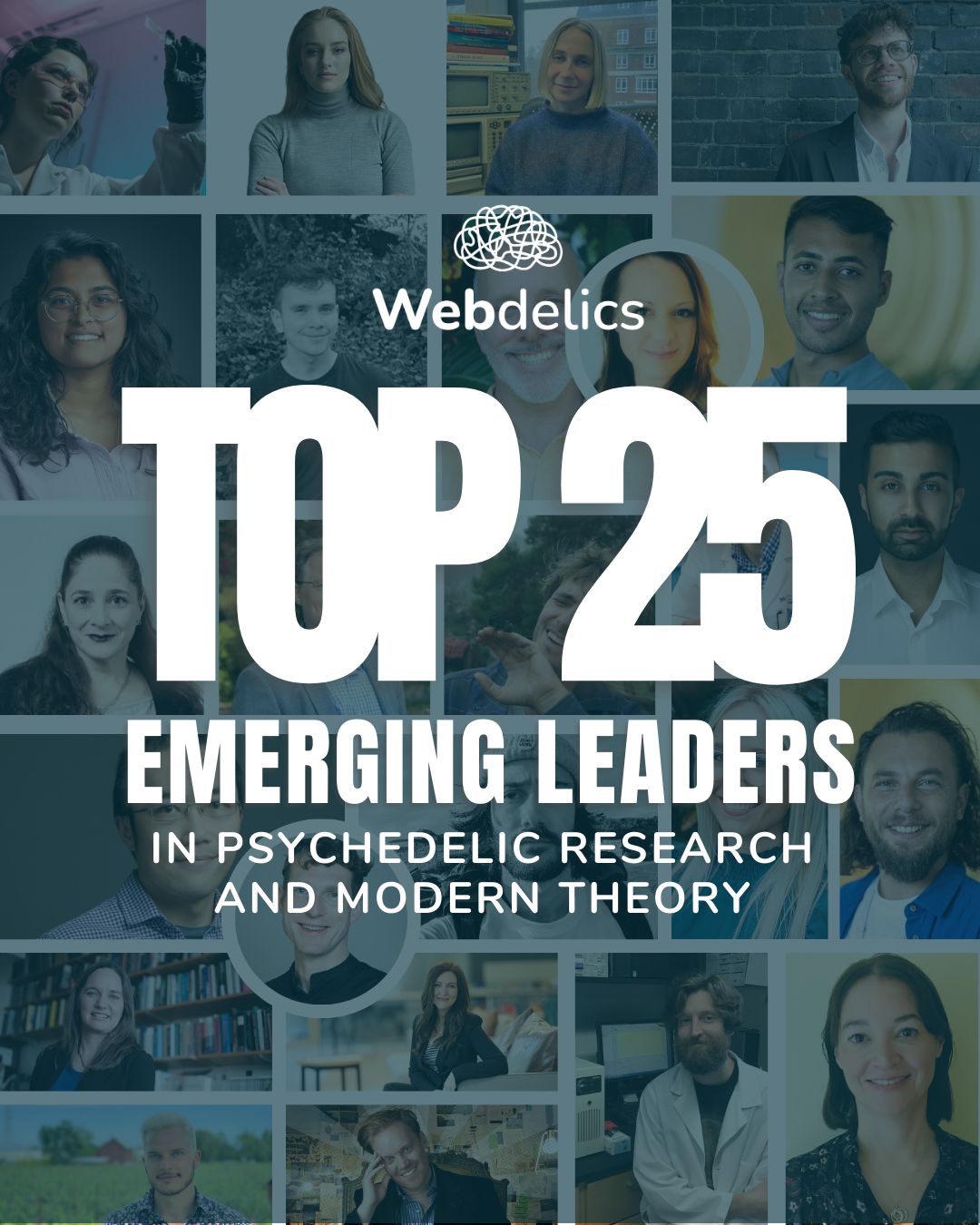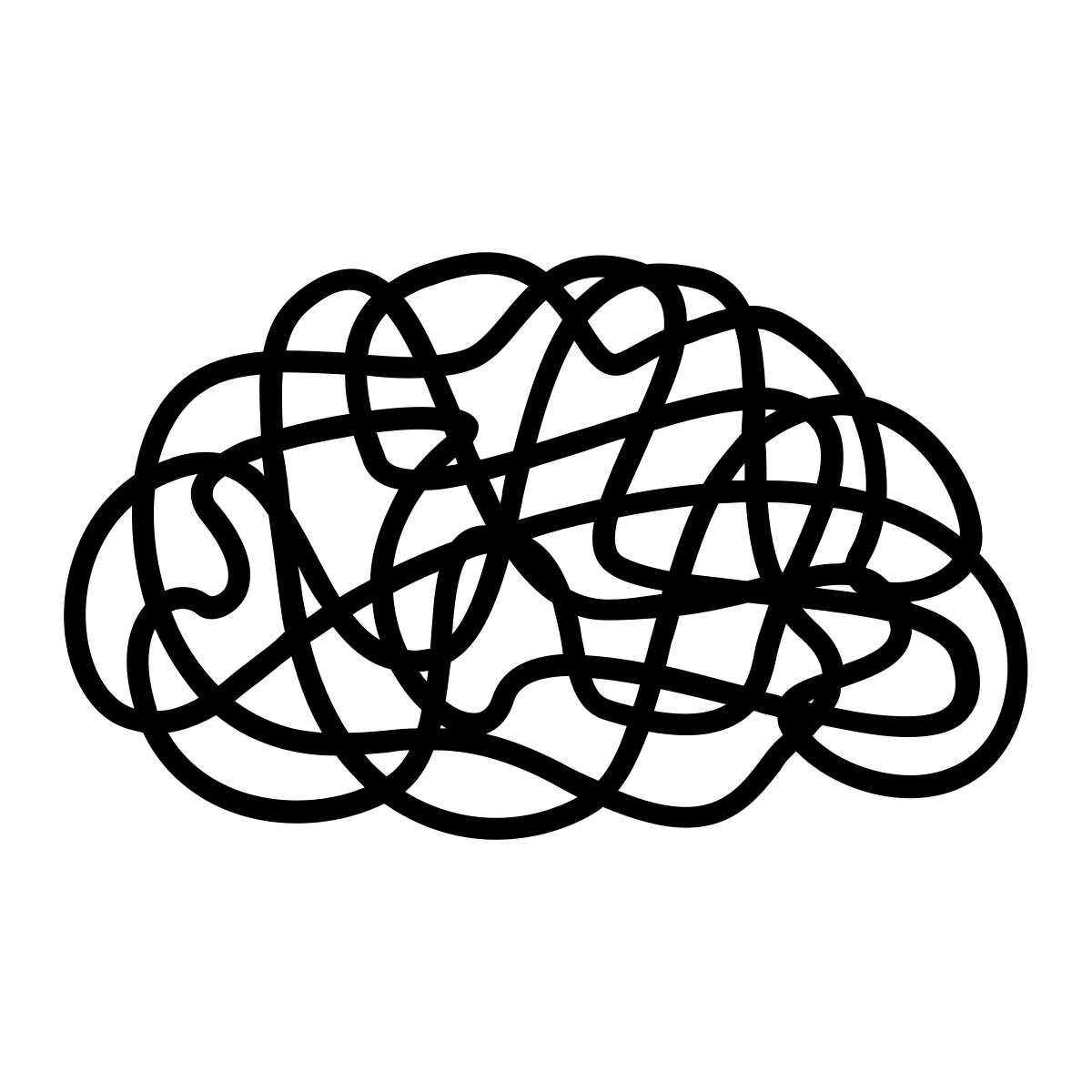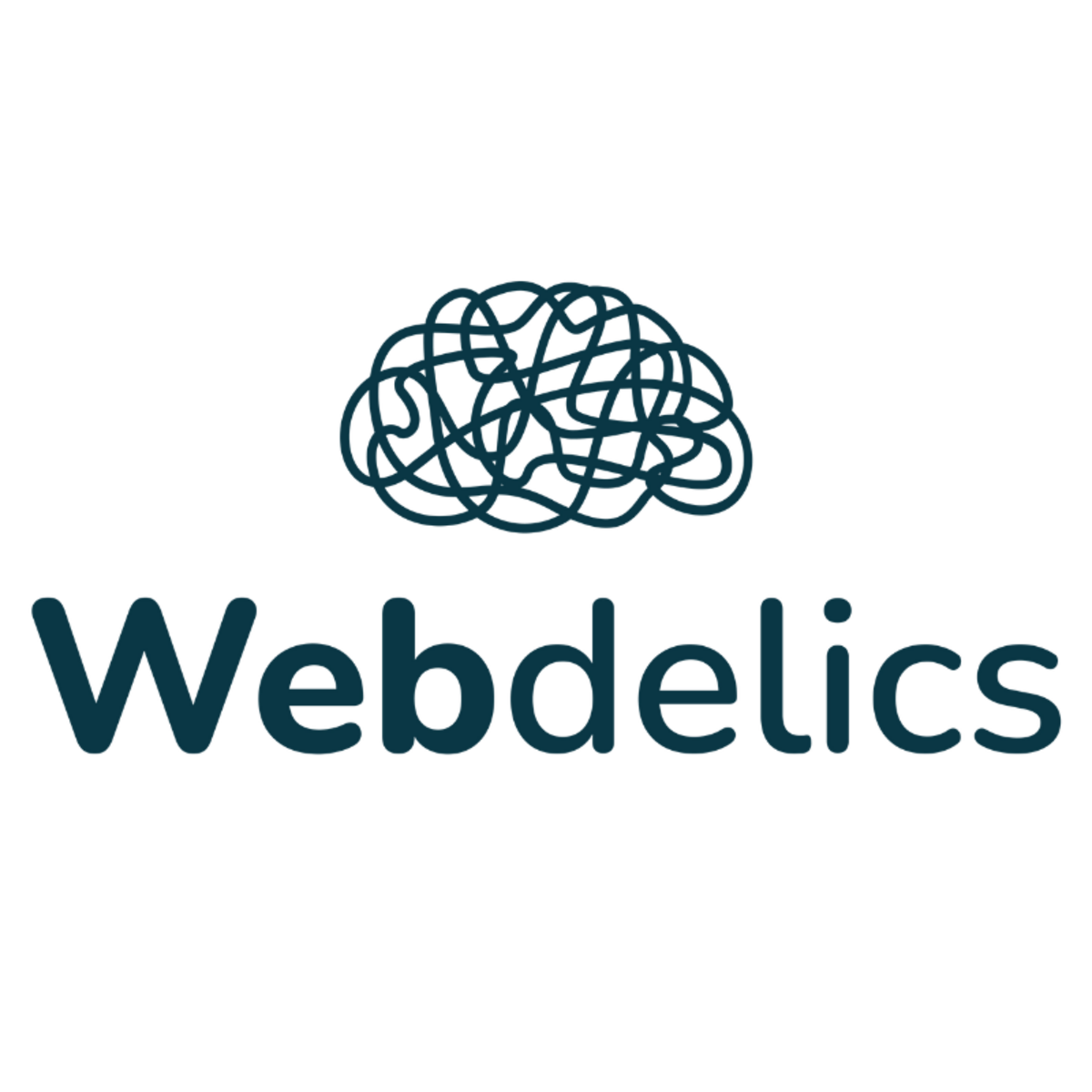

Honoring the Visionaries: Webdelics’ Top 25 Emerging Leaders 🌟
Webdelics is thrilled to present the Top 25 Emerging Leaders in Psychedelic Research and Modern Theory—a celebration of the innovators pushing boundaries in psychedelics, mental health, and alternative therapies.

From visionaries like Dr. Pascal Michael, Ph.D., studying near-death experiences (NDEs) and similarities to DMT, to Dr. Jennifer Mitchell, Ph.D. doing research on veteran communities struggling with PTSD, this list is full of brilliant individuals who are actively shaping the future of psychedelics and plant medicine.
By highlighting these leaders, we’re one step closer to reshaping the narrative and creating a brighter future for mental health and human potential.
📲 Follow Webdelics on social for more updates - Linktree
Let’s celebrate the trailblazers leading the way! 🌱

🗞️ Media & Research
Studies You May Be Interested In…
What happens when Indigenous practices and community members are excluded from Western studies and research? We lose out on vast opportunities to gain information, knowledge, and practices that have been around for centuries. Luckily, Bianca Sebben, Ph.D., and her colleagues in Australia are paving the way for this movement and ensuring Indigenous cultural practices are included in trials to protect the cultivation and application of this ancient wisdom.
Is cannabis (marijuana) a psychedelic? This is a heavily debated topic in the plant medicine community, but neuroimaging studies are investigating THC’s effects on the brain and how it changes our perceptions of reality.
Could psychedelics be a potential treatment for developmental stuttering? While there have been no controlled trials validating their use, suggested theories provide evidence that the default mode network (DMN) and social-cognitive networks (SCN) share a common thread and can be modified via psychedelics.
Did you know your gut microbiome has an impact on how you respond to plant medicine and psychedelics? Yes, you read that correctly. According to a paper published in Pharmacological Research, the gut microbiome can control the metabolism of psychedelics and serve as both a mediator and modulator of their behavioral effects.

📜 This Week’s Top Article
Psilocybin for ADHD

Attention Deficit Hyperactivity Disorder (ADHD) is a common neurodevelopmental condition that affects focus, impulse control, and hyperactive behavior.
ADHD is most commonly diagnosed in children, though symptoms can persist into adulthood.
Individuals with ADHD often experience difficulties with concentration, impulsivity, and restlessness, and may face challenges in personal relationships, work, and school. It can also be associated with secondary conditions like anxiety and chronic stress.
ADHD is often categorized into three subtypes: inattention, hyperactivity, or a combination of both.
The condition is prevalent in about 7.6% of children and 5.6% of adolescents, and around 2.5% of adults continue to experience symptoms.
💊 Current ADHD Treatments
The most common ADHD treatments are stimulant medications, which include drugs like methylphenidate and amphetamines.
While effective for many, these medications can have side effects, such as appetite loss, anxiety, and difficulty sleeping.
For those who do not respond well to stimulants, non-stimulant medications like antidepressants are sometimes prescribed.
Non-pharmacological treatments, such as behavioral therapies, mindfulness, and biofeedback, offer alternative approaches.
Devices like the FDA-approved Monarch Trigeminal Nerve Stimulation (eTNS) have also been explored as non-invasive options, particularly for children who do not want to take medication.
🔎 The Rise in ADHD Diagnoses and Search for Alternatives
As ADHD diagnoses have increased, concerns have grown about the overuse of stimulants.
This has prompted many to explore alternative treatment options, including the use of psilocybin mushrooms…
🧠 Mushrooms and ADHD Treatment
Psilocybin, the active compound in “magic mushrooms,” has shown promise for treating conditions like depression, anxiety, and addiction.
Researchers are now investigating its potential for ADHD, as it may help improve mental flexibility and brain function.
Microdosing psilocybin—taking sub-perceptual doses—has been associated with improvements in concentration, mood, and productivity.
A 2019 study showed that microdosing was a common self-treatment for ADHD, with many participants reporting better results than traditional medications.
In addition to psilocybin, non-psychoactive mushrooms like Lion’s Mane are also being studied for their cognitive benefits.
Lion’s Mane is known to promote nerve growth factor (NGF), a protein that supports brain health and could help individuals with ADHD improve attention and memory.
🥼 Research on Microdosing Psilocybin for ADHD
A 2022 naturalistic study on microdosing with psilocybin-containing mushrooms found significant improvements in ADHD symptoms.
Participants reported a reduction in symptoms, and those who microdosed without conventional medication had the most significant symptom relief.
Additionally, microdosing was linked to enhanced well-being, as measured by the WHO-5 Well-Being Index, further suggesting that it may not only help with ADHD but improve overall quality of life.
However, the study had limitations, including the lack of detailed information on dosages and preparation methods, which could affect outcomes.
Future research is needed to better understand how microdosing may work in combination with conventional treatments and explore its impact on other cognitive functions affected by ADHD, such as working memory and executive function.
🦁 Lion’s Mane Mushroom and ADHD
Lion’s Mane, known for its cognitive-enhancing properties, is gaining attention for its potential role in treating ADHD. It stimulates the production of NGF, which is vital for neuron survival and synapse growth.
These effects could support attention, memory, and executive function, which are often impaired in ADHD.
Lion’s Mane also has anti-inflammatory properties, which could help address inflammation linked to ADHD.
Clinical studies on Lion’s Mane have shown promising results for cognitive health, with one 2009 study revealing significant improvements in participants with mild cognitive impairment.
While this study did not specifically focus on ADHD, it suggests Lion’s Mane may benefit cognitive health and could be valuable for ADHD treatment.
🧬 Other Medicinal (Non-Psychedelic) Mushrooms for ADHD
Beyond Lion’s Mane, other mushrooms like Chaga and Reishi are also being studied for their potential benefits in managing ADHD symptoms:
Chaga: Rich in antioxidants, Chaga may help reduce oxidative stress and inflammation, both of which are linked to cognitive dysfunction and mental health conditions like ADHD.
Reishi: Known for its adaptogenic properties, Reishi may promote better sleep and reduce anxiety—issues often faced by individuals with ADHD. Improving sleep and emotional regulation can indirectly support ADHD management.
☀ The Future of Treating ADHD Looks Bright
Research into the use of mushrooms for ADHD is still in its early stages, but both psilocybin and non-psychedelic varieties like Lion’s Mane show promising potential.
Psilocybin microdosing may provide an alternative to traditional treatments, offering symptom relief and enhanced well-being.
Meanwhile, Lion’s Mane’s cognitive benefits, combined with its anti-inflammatory properties, make it an exciting area of research for ADHD.
As studies continue, these natural options could become an essential part of holistic ADHD treatment strategies, offering an alternative for those seeking non-pharmaceutical approaches.
However, further research is needed to fully understand their effectiveness and how they can complement or replace conventional therapies.

The Sleep App That Forbes Rated 5 Stars 😱
The app Forbes said helps "users achieve high-quality sleep by creating and maintaining effective sleep routines.” is back with new sounds and features!
Now featuring over 300 unique sounds to fall asleep to, a personalized sleep tracker and more. It’s no wonder over 65 million people have downloaded this app for better sleep.
Try it tonight 👇

🎩 Top Blogs
This Week’s Top Psychedelic and Plant Medicine Blog from Webdelics
The Webdelics website has over 160+ evidence-based, research-backed blogs that were intentionally written to give you the facts, not just our opinions.
📚 Here is this week’s top blog on our site, rated by our readers:
We hope you like what you see!

💬 We will leave you with this…
As George Santayana stated, “Theory helps us to bear our ignorance of facts.”
Challenging our beliefs and knowledge is essential for finding the truth, especially in a crowded space like plant medicine and psychedelics.
Until next time…



